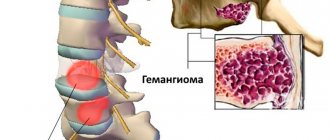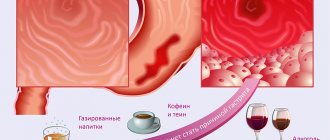Boiled chicken breast and lean crackers - it is precisely this meager diet that many mothers remember with sadness during breastfeeding. Some explain the restrictions by the possibility of allergies in the child, others by the likelihood of colic, and still others are convinced that a strict diet will make breast milk more useful.
However, most doctors agree that a nursing woman's diet should be as varied and balanced as during pregnancy: during lactation, the body requires a large amount of different nutrients for mother and child. Therefore, after childbirth, we are not talking about diet, but only about some features of a nutritious and varied diet. Let's talk about what you can and can't eat while breastfeeding in each food category.
Causes of pathology. Foods that cause flatulence
Increased production of biological gases that do not have time to leave the gastrointestinal tract naturally is not a disease, but a symptom that can manifest itself in a number of pathologies of the gastrointestinal tract. It is no coincidence that one of the most frequently asked questions when visiting a gastroenterologist is how to quickly get rid of severe flatulence?
One of the common causes of flatulence is the use of:
- foods that stimulate gas formation - this includes almost all legumes, cabbage, apples (especially sweet varieties), highly carbonated drinks (including mineral water);
- products that cause fermentation in the intestines are black bread and products made from it (kvass), beer, stringy meat;
- dairy products if they are not accepted by the intestines (due to intolerance to the lactose they contain);
- mineral water with a high titer of organic substances.
Organic causes of flatulence may be disruptions in the production of biological gases, which are observed in a number of diseases and conditions. The most common:
- acute and chronic inflammatory processes in different parts of the gastrointestinal tract (pancreatitis, enteritis, colitis, enterocolitis);
- dysbacteriosis;
- intestinal infection;
- parasitic infestation (helminthiasis);
- a mechanical obstacle to the passage of gases - in particular, intestinal obstruction.
Knowing the causes of flatulence in a particular patient is important for treatment - for example, activated carbon will not help with flatulence if intestinal obstruction with gas retention has developed.
What foods are prohibited while breastfeeding?
Experts identify a number of foods that cannot be eaten in large quantities while breastfeeding - their consumption must be limited:
- Tea coffee. They contain a lot of caffeine, which passes into breast milk and has a stimulating effect on the baby.
- Fatty meat, baked goods, smoked meats, lard, onions, garlic. They change the taste of breast milk - the baby may not like it.
- Citrus fruits, red berries (cherries, strawberries, cherries), nuts, exotic fruits. They can cause allergies in a child.
- Chocolate, soda, legumes, hot sauces, white cabbage. These products can cause increased gas formation and colic in the baby.
It is difficult to compile a complete list of undesirable products, since allergies, colic, and a baby’s sensitivity to the taste of milk are purely individual phenomena. Therefore, the only way to identify problem foods is to observe your child.
THIS IS NOT AN ADVERTISING. THE MATERIAL WAS PREPARED WITH THE PARTICIPATION OF EXPERTS.
Inorganic disorders that provoke flatulence
Flatulence can also occur as a functional transient disorder without organic damage to the gastrointestinal tract (due to an accidental dietary disorder or excessive consumption of foods that increase gas formation).
Diseases and conditions that are not directly related to changes in the gastrointestinal tract can lead to pathology. Most often this is:
- late pregnancy, when the enlarged uterus with the fetus puts pressure on the intestinal loops. How to treat flatulence during pregnancy in women is a common problem;
- neurotic conditions, as a result of which the nervous regulation of the intestines is disrupted.
Basic diet tips for a new mother
Experts consider gas formation in mother and child to be one of the main problems in the early postpartum period. Doctors attribute 80% of such disorders to the unbalanced diet of a young woman.
Modern dietetics has developed a complete list of recommendations for a nursing woman, which will reduce the likelihood of various pathological reactions in the mother and her baby:
- Sufficient fluid intake by a young mother in her diet is considered mandatory. The daily requirement should increase by 1 - 2 liters during this period.
- Specialists in a pediatric consultation should offer the woman a specific diet that corresponds to the calorie loss of her body for 2 to 3 months in advance. The calorie content of foods and the speed of their digestion in the gastrointestinal tract contain the opportunity to prevent excessive gas formation in mother and child.
- Extremely important for proper feeding is the constant attempt by the nursing mother to balance the percentage of proteins, fats and carbohydrates in food. Violation of this proportion often leads to excessive fermentation of products in the mother’s intestines, which can be passed on to the baby through the milk.
- The most important way to avoid gastrointestinal upset in a young woman and her child is to eat regularly and carefully observe feeding times. New-fangled manuals recommend giving breastfeeding to a baby on demand, but this practice is considered by many experts to be quite vicious.
But even if you adhere to these rules, the possibility of gas formation in the mother or baby still remains. A lot depends on the foods that a nursing mother eats.
We recommend reading the article about which vegetables you can eat while breastfeeding. From it you can learn about the nutrition of a nursing mother in the first month after childbirth, food prohibitions and permitted vegetables.
Symptoms of increased gas formation
Signs of flatulence are very indicative and do not require special diagnostic analysis. These symptoms include:
- bloating;
- weakening (or complete absence) of gas discharge;
- severe cramping pain throughout the abdomen.
On examination, the abdomen is swollen, on palpation its wall is tense but painless, on percussion there is a sound like tapping on a drum, on auscultation there is an increase in peristaltic noise.
Severe abdominal pain with irritable bowel syndrome (functional bowel pathology) should be distinguished from pain that occurs with flatulence caused by organic damage to the gastrointestinal tract (ulcerative colitis, intestinal obstruction, and so on). Differential diagnosis can be carried out using instrumental research methods that will identify organic pathology. For this purpose, use:
- fibrogastroduodenoscopy (examination with a probe with optics of the stomach, duodenum and the initial part of the jejunum);
- colonoscopy (examination of the large intestine with a probe);
- irrigoscopy (x-ray examination of the large intestine using a contrast agent).
Symptoms of increased flatulence, manifested in the gastrointestinal tract, may be accompanied by a deterioration in the patient’s general condition, since biological gases, when retained in the body, cause a peculiar form of self-poisoning. In particular, the following are observed:
- deterioration of health;
- headache;
- increased fatigue;
- decreased performance.
Flatulence does not cause particularly sad consequences and does not provoke critical conditions, but it can cause a feeling of severe discomfort.
How to create a menu to relieve a newborn from colic
Knowing what foods cause colic in infants, any woman can create the right menu for herself. This may include:
- Lean fish and meat.
- Cottage cheese, kefir, fermented baked milk.
- Buckwheat, rice, wheat cereals.
- Baked vegetables and fruits.
It is important to consider not only what foods cause colic in newborns, but also to understand what can cause gas formation. In this regard, it is necessary:
- Eat foods separately without mixing them.
- Drink more clean water.
- Eat in small portions.
- Do not introduce exotic foods into your diet.
To increase the protective properties of the child’s body, it is necessary to gradually introduce new foods into the diet. After all, the baby must prepare to eat not only mother’s milk. And at this stage it is very important to reduce the formation of colic. For this purpose, you can give your baby the drug “Colikid”, which is indicated for children from the first months of life. The active ingredient simethicone gently eliminates gas formation in the baby's stomach without penetrating into the blood or being absorbed by the body. This makes it possible to relieve the baby from unpleasant sensations even if the mother allowed herself to eat some foods that cause colic in babies.
Mom's nutrition and baby's bloating
Babies under 3-4 months of age often suffer from flatulence and colic. This is due to the immaturity of their digestive system. It is important for a nursing woman to adhere to proper nutrition. All substances in the food consumed by a young mother enter the baby’s body through breast milk.
If a woman’s diet contains foods that increase gas formation and cause inflammation of the mucous membrane, this can negatively affect the baby’s well-being.
Problems in the intestinal tract that arise from consuming certain foods can provoke the following conditions:
- delay in the development of the baby;
- loss of appetite;
- decreased resistance to various infectious and viral diseases;
- refusal of breastfeeding.
Pharmaceutical companies offer a lot of drugs for flatulence and colic in babies. But the use of medications can lead to side effects. Therefore, it is better for a woman to follow a diet during lactation.
Diet for flatulence in a newborn
It is easy to determine the presence of flatulence in a newborn and infant. The baby becomes restless for no apparent reason (the diaper is dry, the temperature is not elevated), refuses to eat, is capricious and cries.
When attacks of colic develop, the baby bends its legs to its stomach, clenches its hands into fists and screams. It is almost impossible to calm the baby.
If a newborn has increased gas production, his stomach will be swollen and dense. When pressing on the abdominal wall, the pain usually intensifies. Gases come out loudly and have an unpleasant odor. When a child has flatulence, it is important for a nursing mother to follow a certain diet.
All foods that increase gas formation and irritate the intestinal mucosa should be excluded from the diet. A woman’s diet should be developed taking into account age restrictions and the state of the digestive system. The menu should include products that have a carminative effect, normalize stool and gas discharge.
Allowed products for a nursing mother with flatulence in a child:
- lean boiled fish;
- dried bread, crackers;
- cottage cheese;
- biokefir;
- bay leaf, cumin;
- green tea;
- low-fat meat and fish broths;
- curdled milk;
- pureed buckwheat porridge with water;
- decoctions based on rose hips, blueberries, bird cherry;
- dill, parsley;
- protein steam omelette;
- steamed cutlets, soufflé, meatballs, meatballs made from lean meats.
For flatulence and colic, the child can be helped by inserting a gas tube, massage and light exercises.









